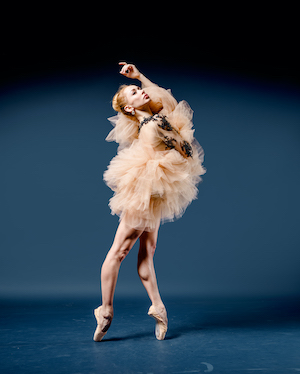Article by Karen Thurlow, Arts University Bournemouth (AUB)
At this time of year, as students graduate and famous faces are made honorary fellows, questions are raised about the value of these fellowships. Are they token PR stunts or genuinely beneficial to students?
Arts University Bournemouth (AUB) recently awarded honorary fellowships to former Royal Ballet principal dancer Dame Darcey Bussell DBE, alongside Hot Fuzz director and screenwriter Edgar Wright, designer of Britain’s road signage system Margaret Calvert and Hollywood costume designer Jenny Beavan.
For us, these fellowships are about bringing the highest quality creative talent into the AUB family and helping our students to learn and feel inspired by those who have come before them. So, how can Darcey Bussell use her new position to foster the next generation of performers?
Genuine connection
Honorary fellowships are successful if there is a meaningful link and both parties are committed to building a strong, long-term relationship. Dame Darcey is a great example of this. She is not only a world-class dancer but is also passionate about sharing her creative wisdom and meeting with dance students. She has already been active in student events at AUB, sharing her expertise.
A couple of years ago, Dame Darcey visited the AUB campus and met with Graphic Design, Animation and Dance students to discuss her new aerobic dance workout DDMIX. Darcey briefed students on DDMIX and asked them to design a variety of expressions of the brand that remain true its core values of fitness and diversity. She explained that the relationship with AUB students is genuine and symbiotic:
“As a new business, we’re building a relationship with the University, using young talent and the students’ knowledge and expertise. Hopefully we can create something fun with them. This has been like a bit of a breakthrough for us, like a breath of fresh air.”
Building resilience to survive the creative industries
At Arts University Bournemouth we focus on making our dancers dance artists of the future, where students can turn their passion into a creative career. The dance course is based around transitioning students from studying the subject to actually performing, choreographing, stage managing, teaching, and producing dance in the creative industries.
Hearing from those who have been through it and have triumphed plays a vital part in nurturing the sort of endurance and resilience that is necessary for students. Similarly, gleaning wisdom first-hand can be the advice that inspires students never to give up. Dame Darcey gets this and has shared her reflections on her career with students:
“Work especially hard when you are young, there’s no better time. There are no short cuts. Say yes whenever possible and collaborate as often as you can.”
Dame Darcey also shared with our students the importance of being able to understand their weaknesses, to make mistakes and to learn from them. For students on the cusp of embarking on a professional career, hearing that it’s OK to not know everything, from someone who has been at the top of her game is invaluable.
Championing creative communities
Another key aspect of honorary fellowships is how they can shine light on a particular subject. Dame Darcey is famous for her role as Principal dancer at the Royal Ballet for almost 20 years and now as judge on Strictly Come Dancing. She is able to champion the creative industries in ways that many cannot. By becoming an honorary fellow she can use her position as a “national treasure” to draw attention to emerging students and creative communities.
Each of the honorary fellows we announced this year spoke to students at our graduation events and embraced the relationship between creative education institutions and the professional sphere. For example, Dame Darcey has spoken about the modern and cutting-edge nature of AUB that enables graduates to successfully feed directly into the creative industries. She has also said that “complex societies increasingly rely on the creative individual in whatever field, so an institution like AUB is playing a very important role in fostering creativity in our next generation”
When choosing honorary fellows, this ambassadorial role is crucial. At AUB, we choose honorary fellows not only for their expertise in their individual fields, but for their passion for the arts and drive to inspire the future leaders of Britain’s world-renowned creativity.
There is something particularly moving about graduates who are taking their first steps into the creative industries, rubbing shoulders with some of the greatest stars and this is what honorary fellowships are all about. When they are chosen well, honorary fellows can inspire, guide and captivate the next generation of artists and be genuine role models, sharing practical and creative knowledge.


